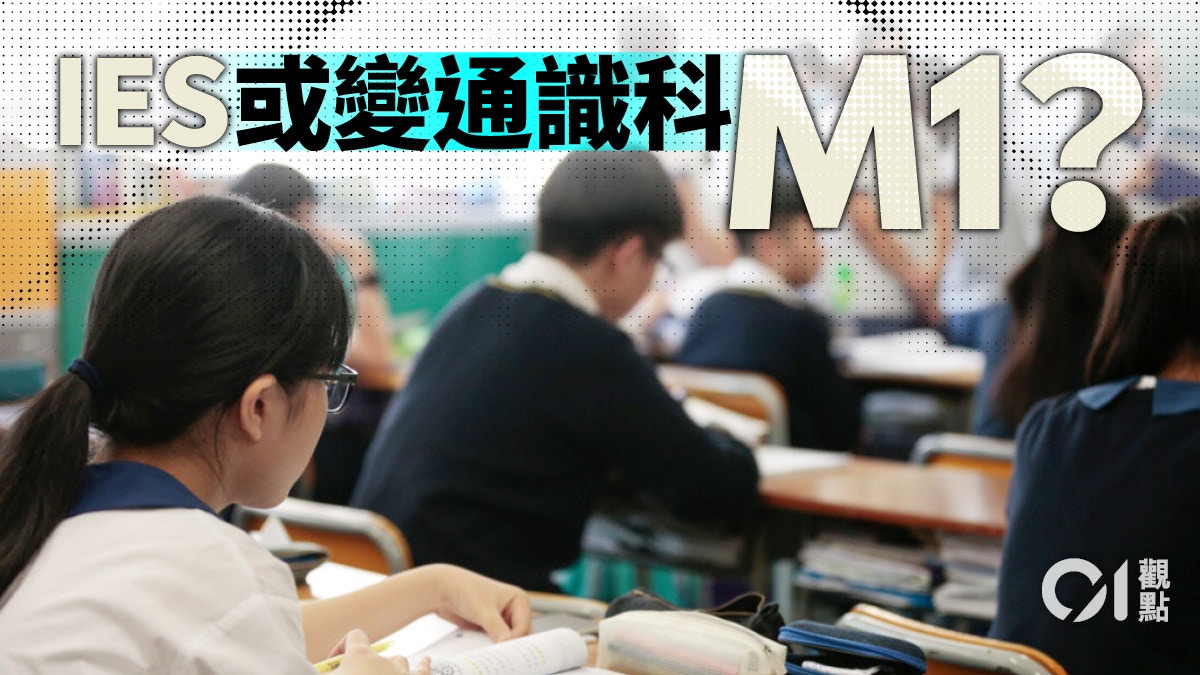01 view
Written by: Commentary Editing Room
2020-09-24 07:30
Last update date: 2020-09-24 07:30
The School Curriculum Review Task Force submitted the final report of the New Senior Secondary Curriculum to the Education Bureau on Tuesday (22nd), recommending that the general subjects maintain compulsory examinations, but it is recommended that the curriculum content should be reduced, allowing students to choose not to conduct independent thematic investigations (IES), and replace IES Turned to the extended and elective part.
In the past, the IES part of Liberal Studies has often been regarded as "chicken ribs." It not only increased the burden on students, but accounted for points and could not reverse the phenomenon of "one-time trial and death".
If IES is changed to extended and optional courses in the future, the reform of the Education Bureau must also allow students to benefit from it.
General Education is a compulsory subject for the Diploma of Secondary Education. The Director of the Education Bureau, Yang Runxiong, stated that some schools set up general education for junior high school students to adapt to the curriculum as soon as possible.
(Profile picture)
Independent topics are harder than extended mathematics
The original intent of independent topic inquiry is to allow students to explore social topics of personal interest, and to master skills from drafting topics to data collection, data analysis and essay writing.
According to the curriculum and assessment guidelines of the General Education Subject, the recommended lesson time for independent topic inquiry is 82 hours, which accounts for 32.8% of the 250 hours of the high school three-year general education curriculum.
The scale of IES should theoretically be larger than the "school-based assessment" of other subjects. However, according to the actual situation of school teaching, 32.8% of the recommended class hours still overestimate the current status of IES.
The recommended class hours of the general subjects account for one-third of the general subjects, but the IES score only accounts for 20% of the total scores of the general subjects. In the "score-oriented" environment, it is even more difficult for IES to grab class hours.
The Federation of General Education Teachers has surveyed the actual class hours of IES in various schools in the past and found that about 80% of teachers spent less than 40 hours on teaching IES in the past three years, and 40% of them said that schools only spent less than 20 hours.
In many schools, the teaching of IES skills has actually been reduced to school-based evaluation. After teachers hurriedly teach IES skills in the curriculum, they are left to students for free use.
The current status of the implementation of IES courses is far from the ideal proposed.
In terms of actual learning results, the extension modules of mathematics such as M1 (Calculus and Statistics) and M2 (Algebra and Calculus) correspond to the "Applied Mathematics" and "Pure Mathematics" of the past Advanced Level Examination.
Many university subjects, such as engineering and mathematics, have certain basic knowledge before entering the university, which is also conducive for students to study related subjects.
However, compared with mathematics, IES skills are less specialized.
In order to treat IES as an extended or elective part, the Education Bureau really needs to enrich the content of IES courses, such as imitating the teaching methods of statistical research and data analysis in university social subjects, so that students can make good use of three years of learning " Independent thematic inquiry".
If the IES scores are separated from the written test, but in the end, students are only allowed to complete the content that the past part of the school hastily completed in 20 hours in three years. Such a reform would be unnecessary.
In the past, TV advertisements often said that "going to school is not asking for scores," but society still cannot deny that test scores are already an important indicator of college admissions.
(Profile picture / Photo by Liang Pengwei)
Can IES help you progress to higher education?
As the saying goes, "Going to school is not asking for scores," but society still cannot deny that test scores are already an important indicator of college admissions.
If IES is to be transformed into an extended and optional part, the Education Bureau must attract students from the aspect of university connection.
After the transfer of the new high school, many university subjects will be weighted by the scores of physics, chemistry, physics, and even M1, M2 and other subjects. This results in a greater advantage for science students in choosing subjects. However, if students study literature, history and other subjects in middle school, Even if universities choose similar subjects, liberal arts students still find it difficult to see advantages in choosing subjects.
The above tendency for university admissions has to a certain extent caused the number of middle school students to choose science subjects, and the number of liberal arts students has not improved for many years.
Before transitioning to IES, the Education Bureau should first find out how many subjects will be admitted to the university to examine the students' IES scores, or even weight the IES scores.
When high school students decide to choose subjects, it is difficult to ignore the enrollment requirements of college students, and students must also consider their future career path.
The Education Bureau should give confidence to future students who take IES as an elective, so that students can rest assured that they can learn something after putting in time and hard work.
The review of Lam Cheng's "Uncovered Chicken Cage" on the controversy course should be handled professionally
There is no need to "politicize" the "political questions" of the general exam
There is no "drug" in Liberal Studies. Students' discriminative thinking is worthy of recognition
01 view
General Education Bureau 01 Viewpoint









